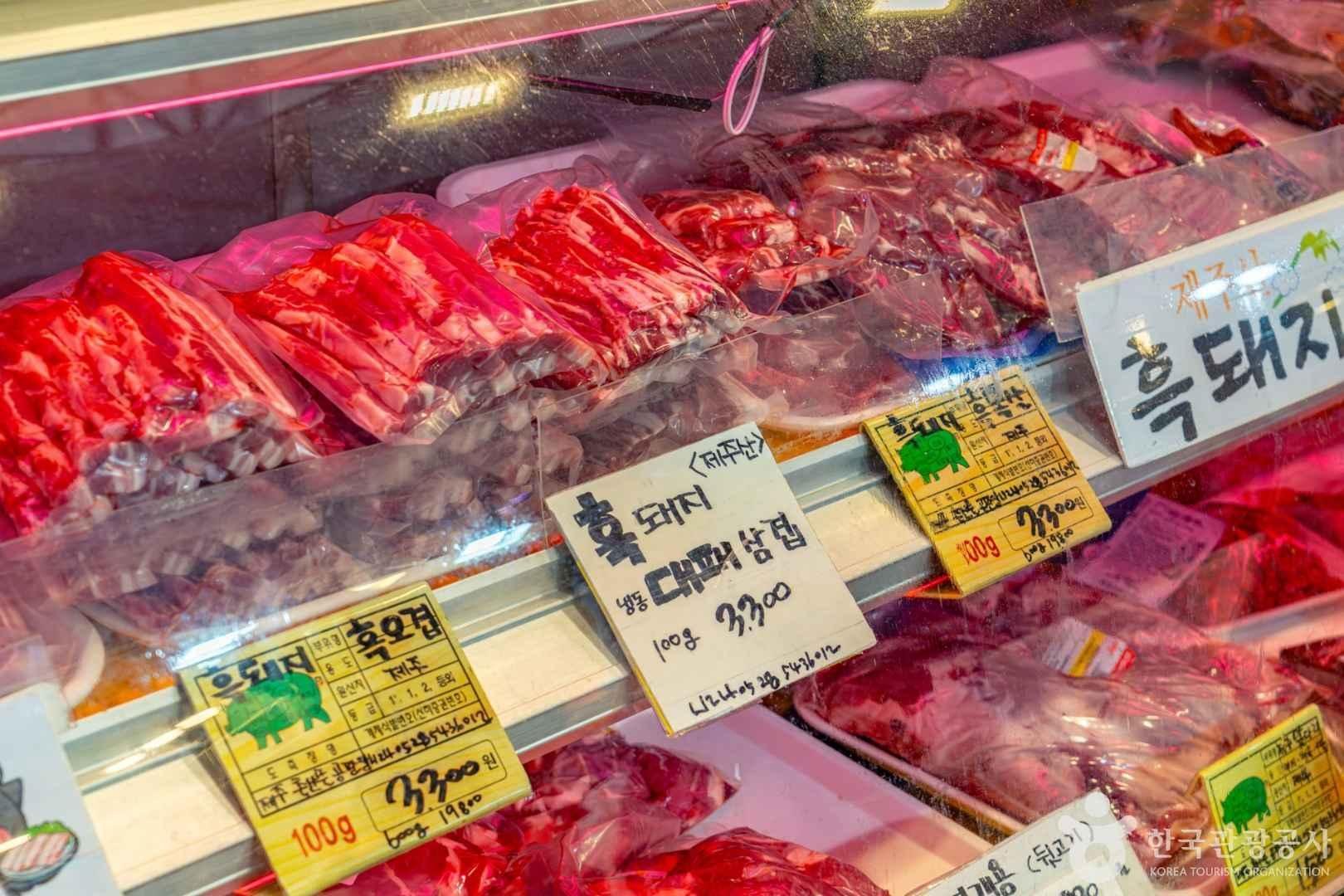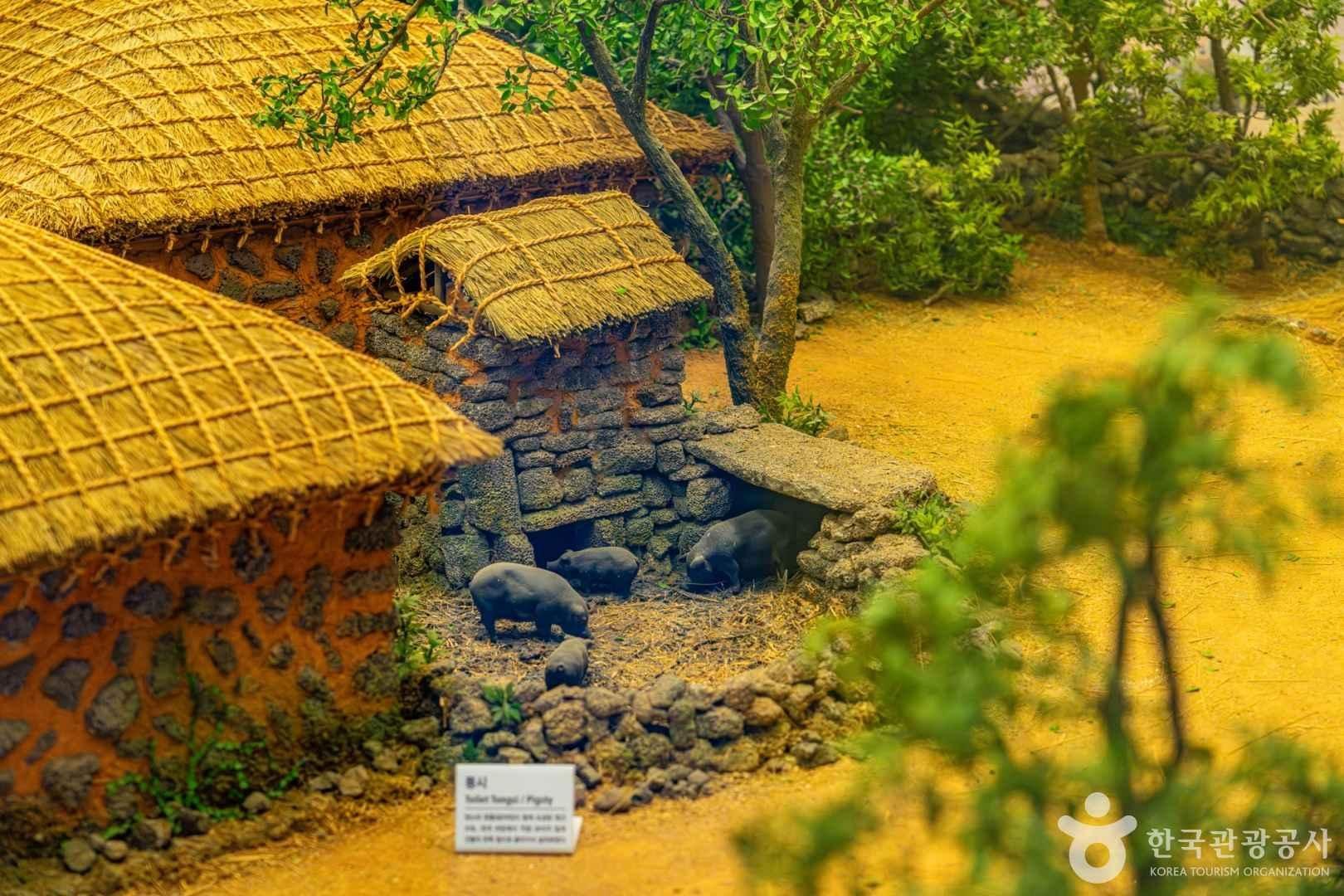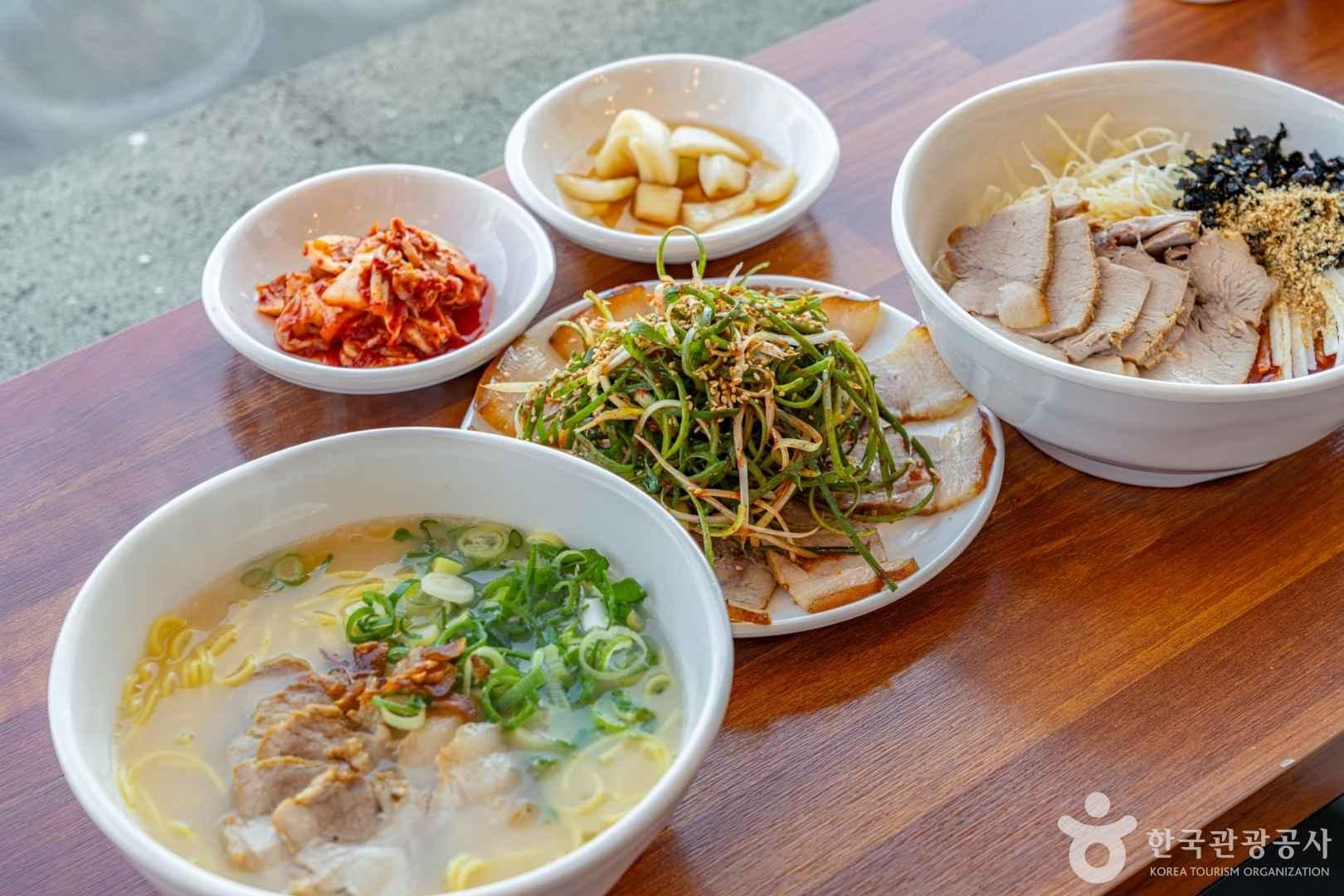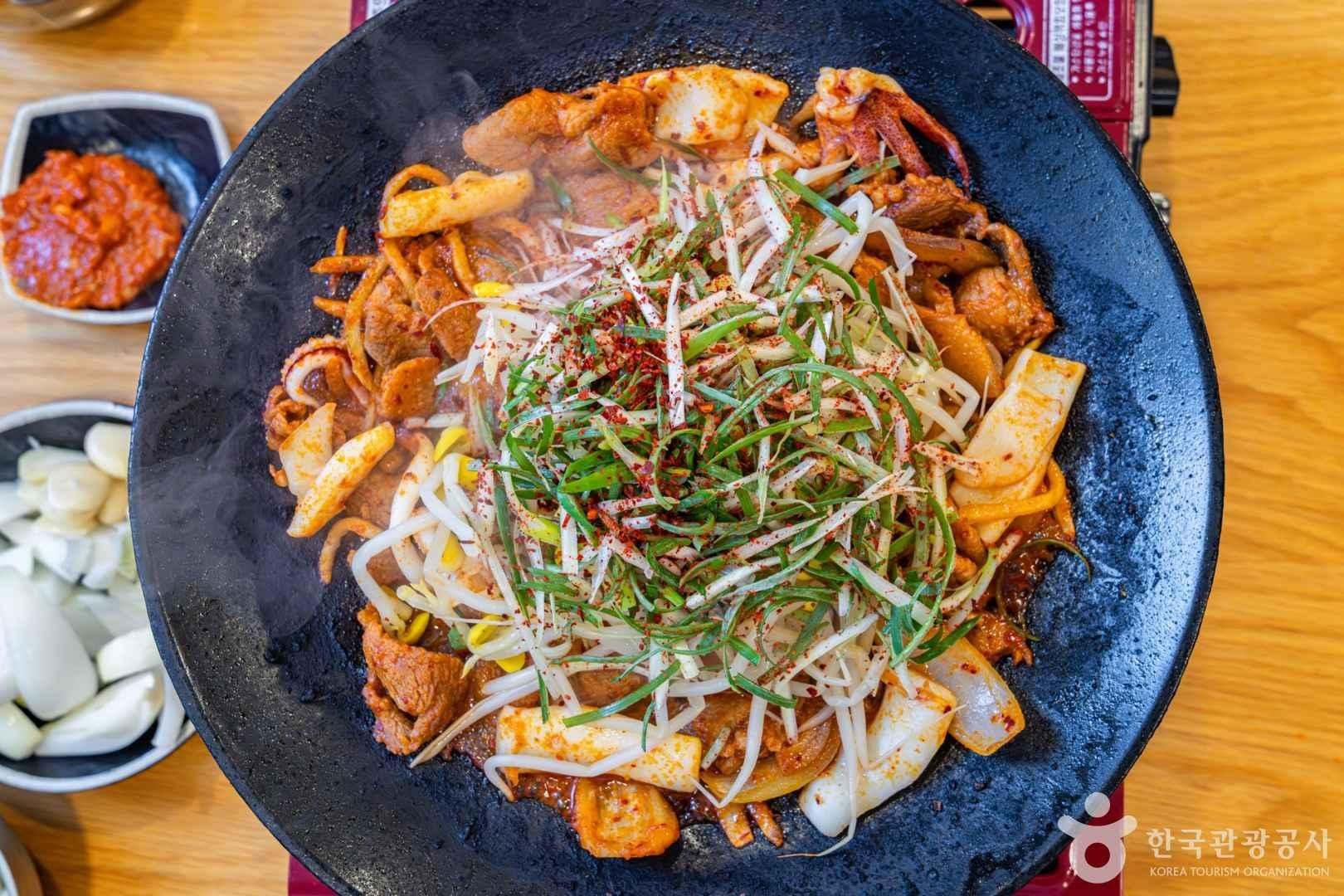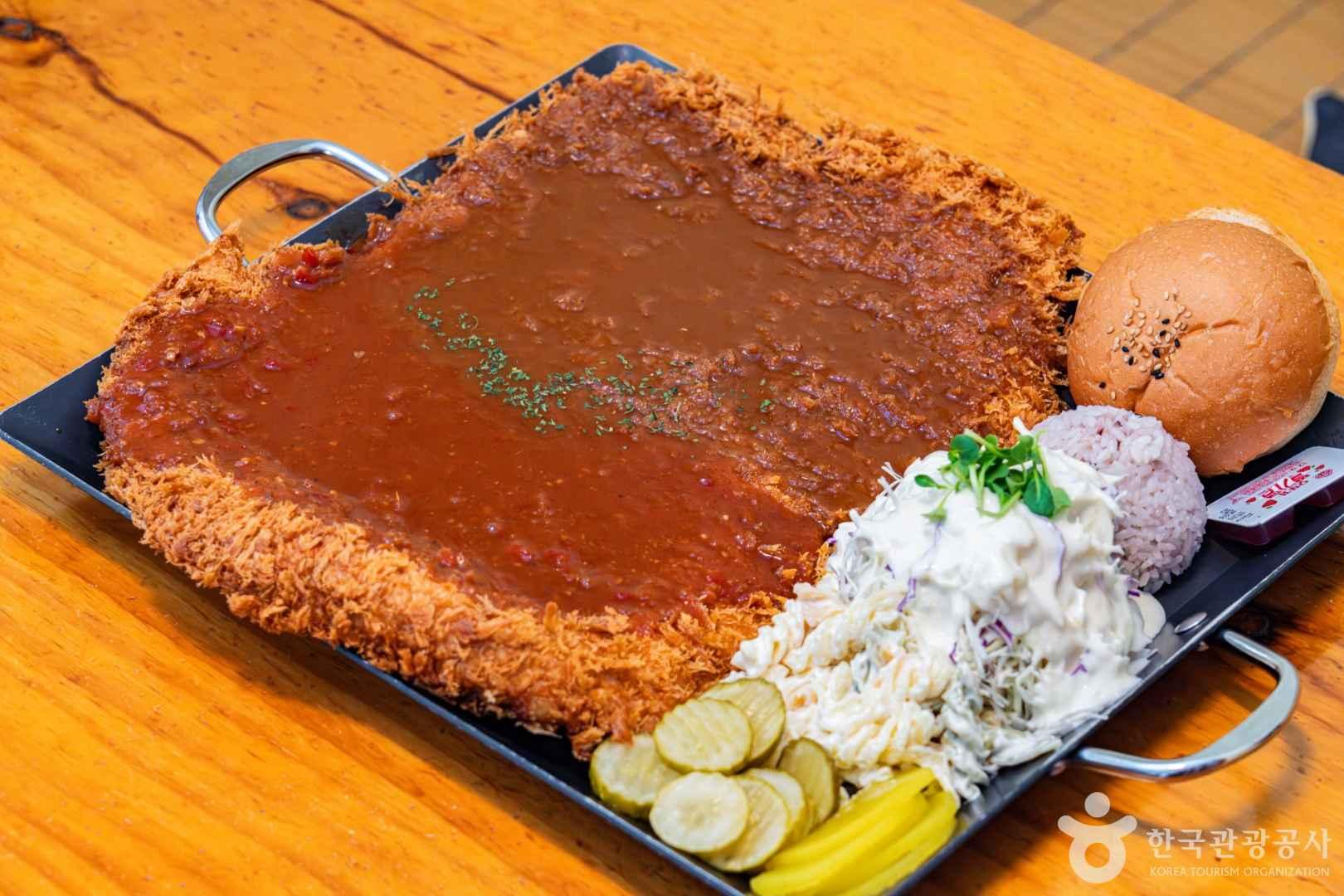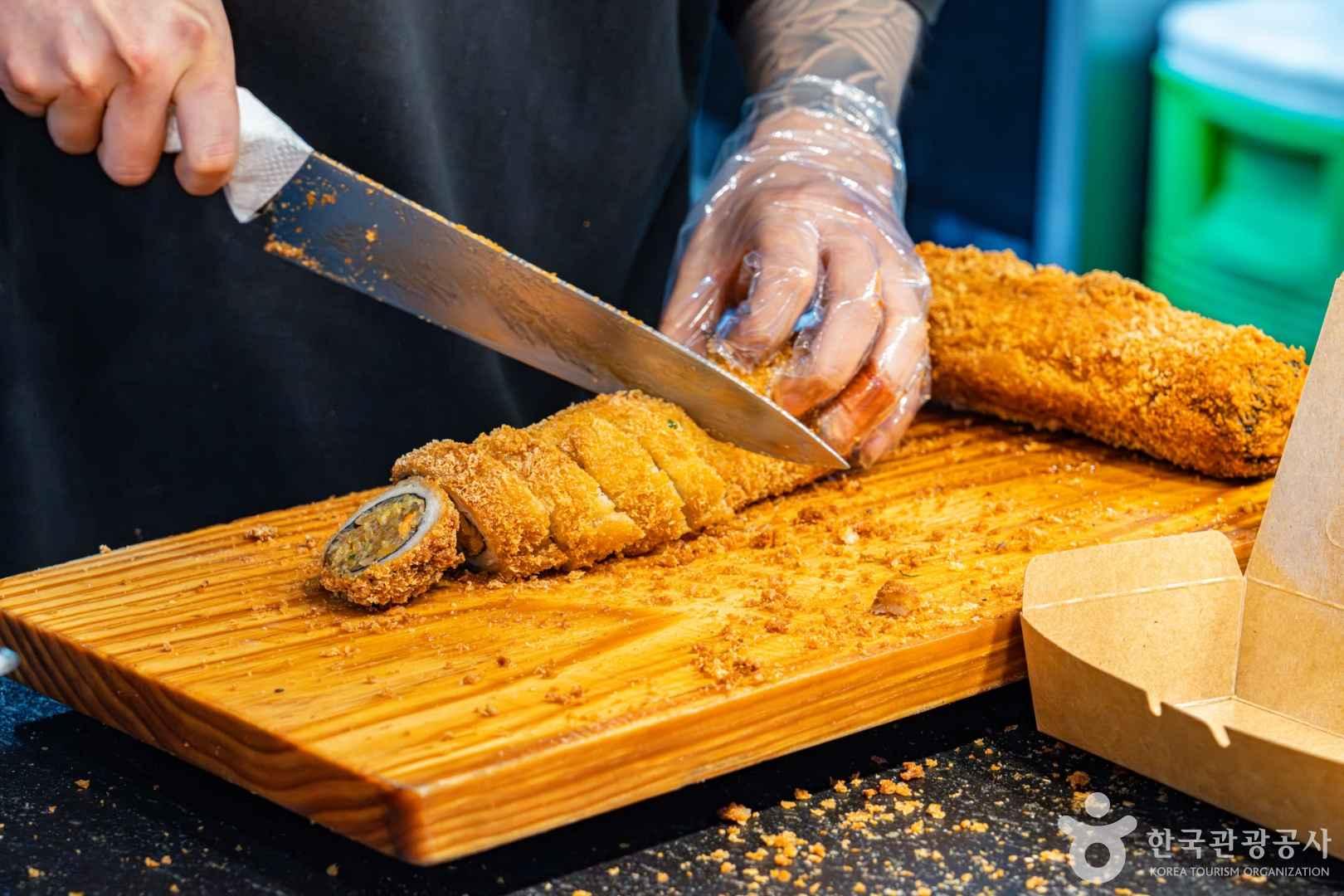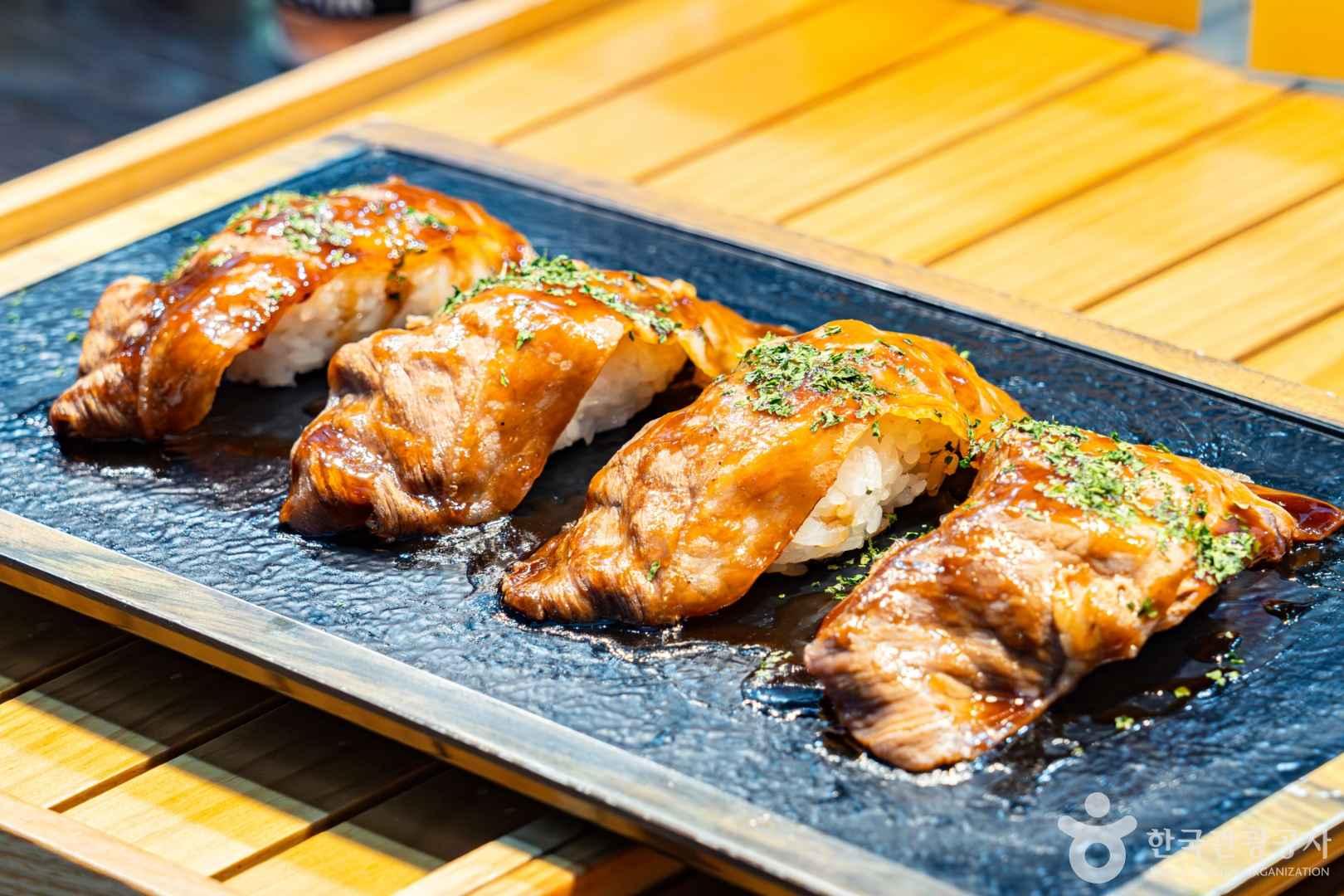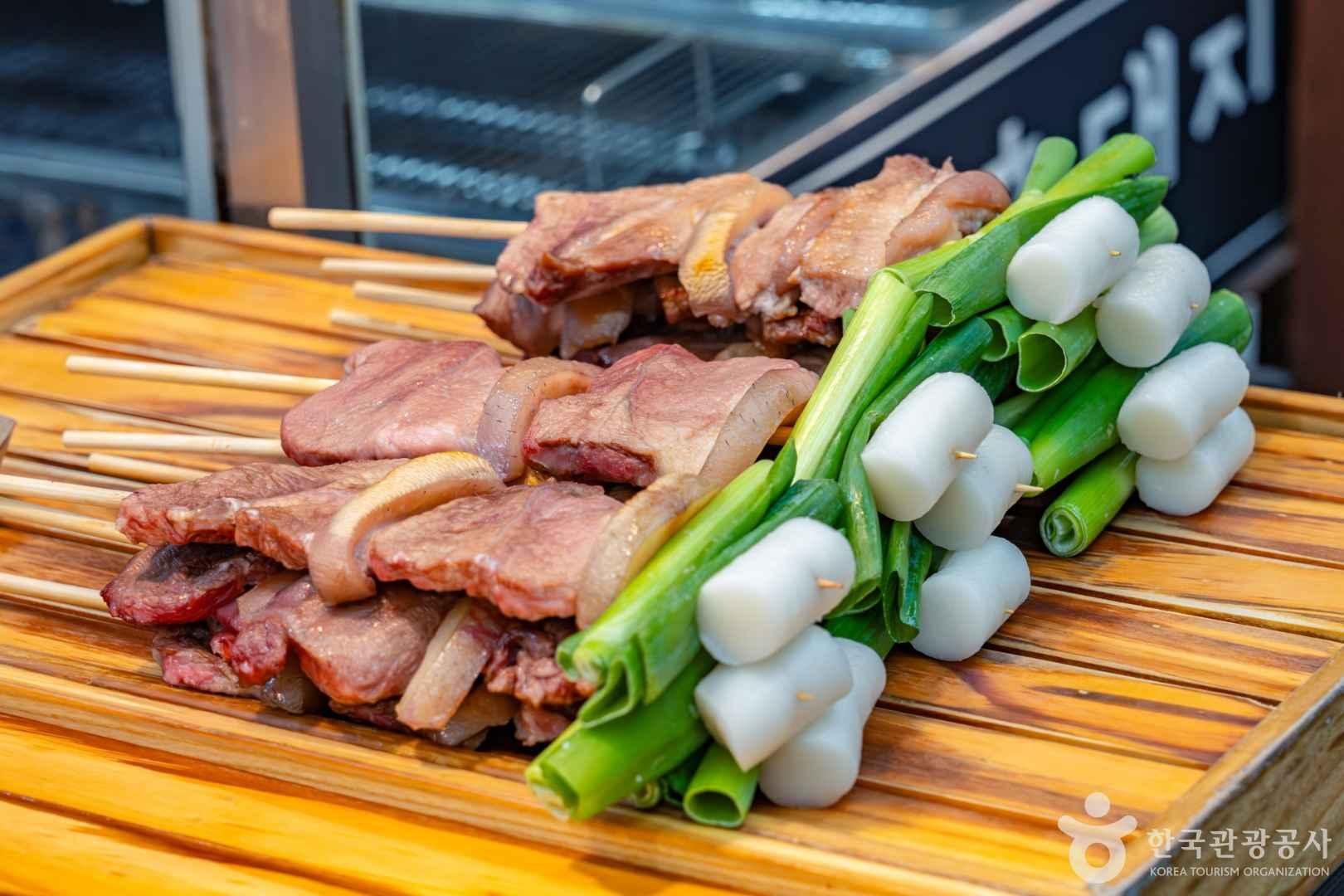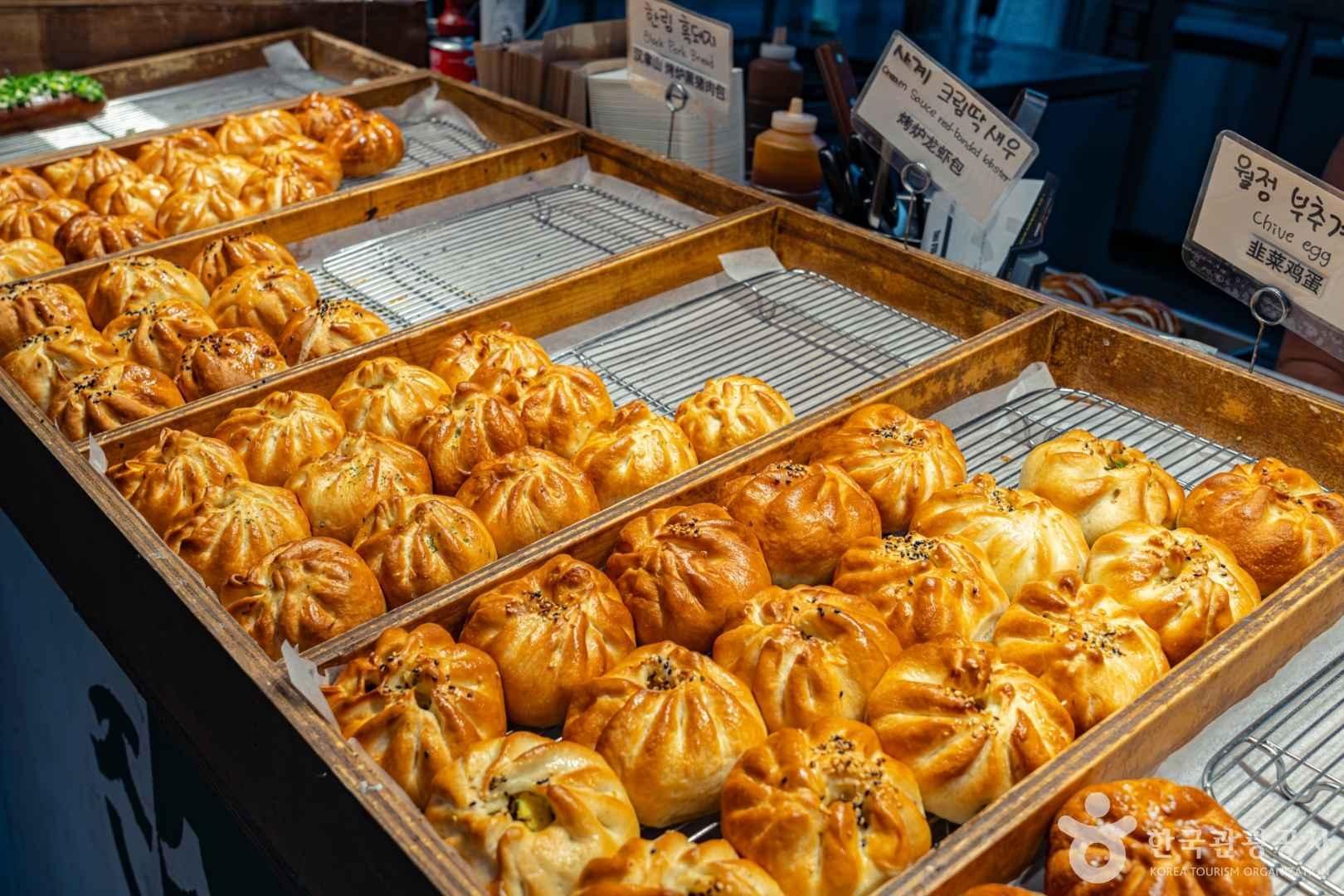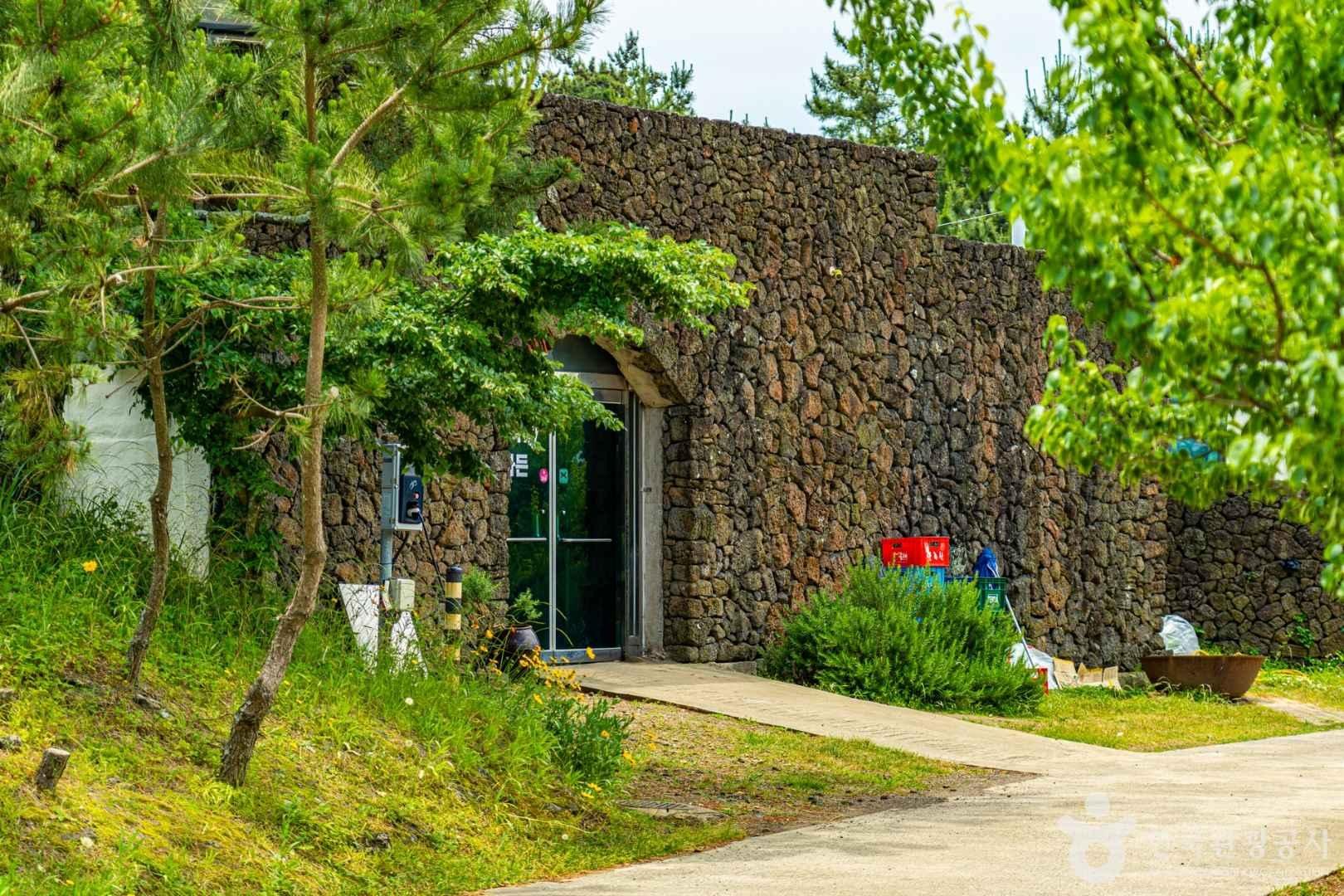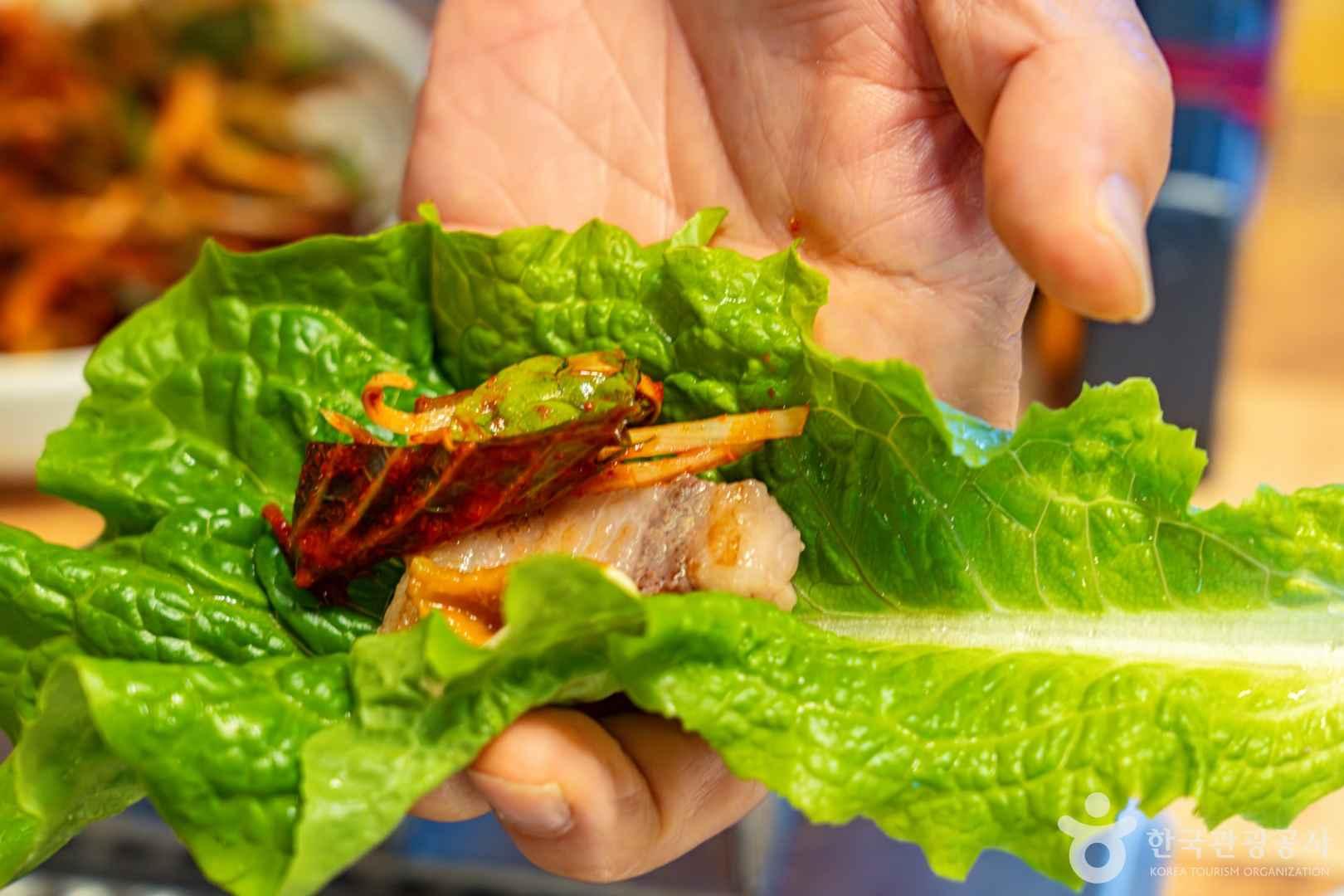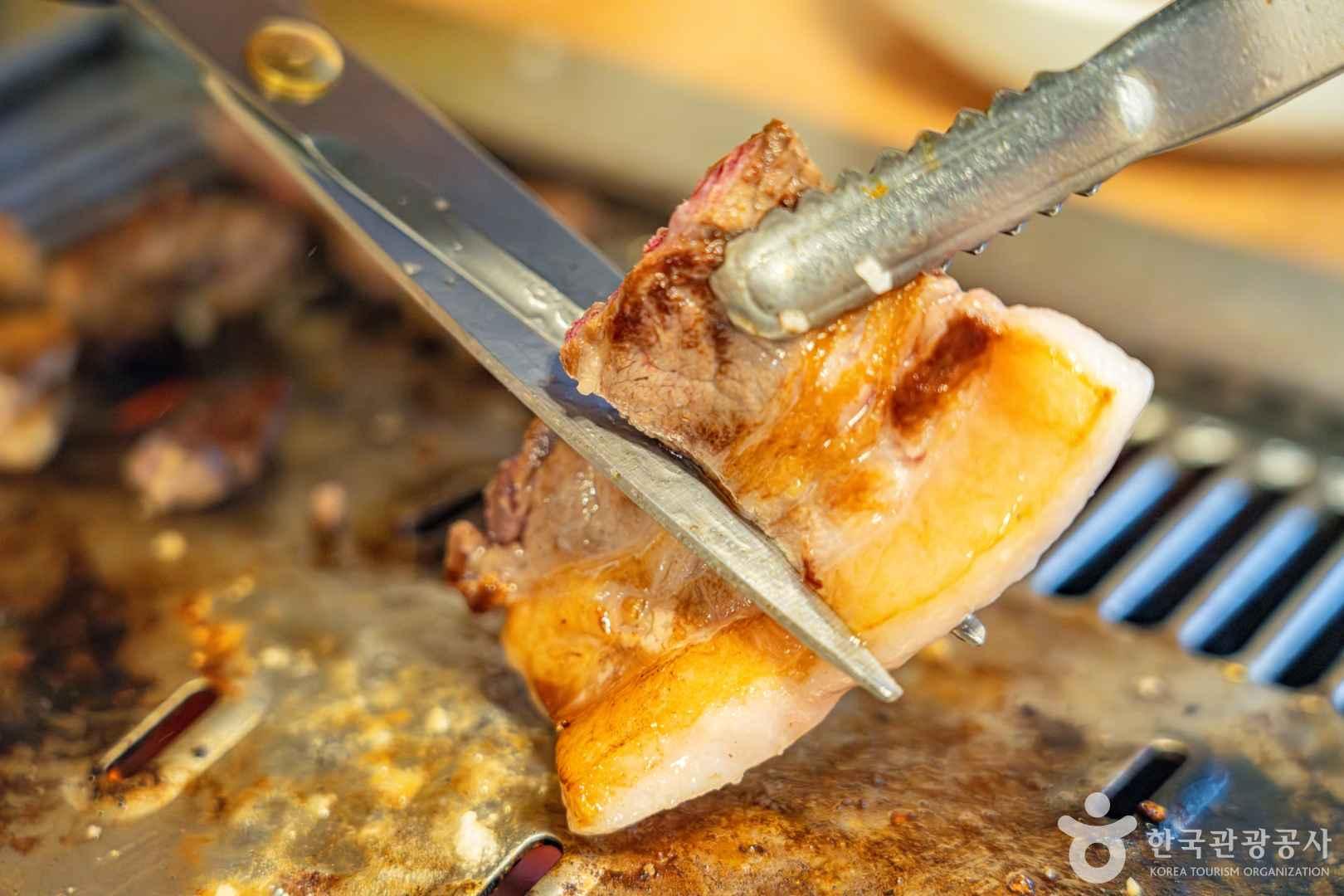
- Log in
-
- Sydney Overseas Office
- London Overseas Office
- Paris Overseas Office
- Toronto Overseas Office
- Los Angeles Overseas Office
- New York Overseas Office
- Ulaanbaatar Overseas Office
- Istanbul Overseas Office
- Dubai Overseas Office
- New Delhi Overseas Office
- Manila Overseas Office
- Jakarta Overseas Office
- Hanoi Overseas Office
- Kuala Lumpur Overseas Office
- Singapore Overseas Office
- Bangkok Overseas Office
- Map
- Sydney Overseas Office
- London Overseas Office
- Paris Overseas Office
- Toronto Overseas Office
- Los Angeles Overseas Office
- New York Overseas Office
- Ulaanbaatar Overseas Office
- Istanbul Overseas Office
- Dubai Overseas Office
- New Delhi Overseas Office
- Manila Overseas Office
- Jakarta Overseas Office
- Hanoi Overseas Office
- Kuala Lumpur Overseas Office
- Singapore Overseas Office
- Bangkok Overseas Office
Contents View
-
-
-
Heukdwaeji: The Harmony of Chewy Fat and Rich Juices
-
02/20/2025
-
104
0
0
-
-
-
-
Heukdwaeji: The Harmony of Chewy Fat and Rich Juices

When & Where

The flavor and nutritional value of heukdwaeji (black pork) peak in spring and fall, the seasons most conducive to raising pigs.

There are many restaurants specializing in heukdwaeji dishes all over Jeju.
Jeju Island, located at the southernmost tip of the Korean Peninsula, is where you can experience pristine nature and exotic landscapes centered around Hallasan Mountain, along with a variety of local dishes. As the largest island in Korea, it’s also a destination known for its wide selection of seafood.
Nevertheless, many Koreans readily choose heukdwaeji (black pork) as one of Jeju’s signature specialties. What makes heukdwaeji such a representative specialty of the island?
Why Is “Pork” a Specialty of Jejudo, an Island Surrounded by the Sea?
In the past, Jeju Island was considered a remote and isolated region. Unlike today, it was a region where scholars who committed offenses were sent into exile. After the mid-Joseon period, it became even more difficult to travel between Jeju and the mainland because of the order banning the migration of Jeju residents to the mainland, which was issued in 1629, during the seventh year of King Injo’s reign. This order was designed to prevent people from leaving Jeju by classifying them as runaways, as more and more residents sought to leave the island in search of a better life. This policy of isolation, which lasted for over 200 years, had a profound impact on Jeju’s food culture, making it more distinct from that of the mainland. Among the most unique aspects of Jeju’s cuisine is its heukdwaeji.
Despite being surrounded by the sea, prohibitions on migration prevented residents from building large boats, forcing them to rely more on farming and livestock rather than on fishing. The island's volcanic terrain made it difficult to retain water, so residents focused on growing dry-field crops rather than rice.
In such circumstances, raising large numbers of pigs was not feasible, as they competed with humans for food. Most families only raised one or two pigs at a time. These black pigs were considered delicacies reserved for special occasions such as family celebrations. The tradition of preparing various dishes using black pigs for the entire village to share on these occasions continues to this day.
Various Dishes Made with Jeju Heukdwaeji
The fat in Jeju heukdwaeji contains less moisture than that of regular pork, giving it a chewier texture. The muscle fibers are thinner, providing a better texture, and the meat’s distinctive red color comes from a higher red muscle content. Jeju locals have long taken advantage of these unique characteristics, creating a variety of heukdwaeji dishes.
One such dish is dombegogi (steamed pork slices), which consists of boiled pork served in large chunks on a cutting board (with dombe being the Jeju dialect for "cutting board"). Another traditional dish is jeopjjakppyeotguk (pork shoulder bone stew), a soup made by boiling pork and bones for a long time and thickening the broth with buckwheat flour. Sundae, a blood sausage made with pig offal stuffed with buckwheat and seonji, is a delicacy found only on Jeju Island. Other dishes include gogiguksu (pork noodles), noodles served in a rich pork bone broth, and momguk (gulfweed soup), a soup made with gulfweed. Recently, heukdwaeji dongaseu (black pork cutlet), made by pounding black pork thin, coating it in flour, egg, and breadcrumbs, and then deep-frying, has gained popularity.
However, the most beloved heukdwaeji dish remains heukdwaeji-gui (grilled black pork). Whether grilled over charcoal or on a grill plate, this is a must-try when visiting Jeju. While wrapping it in lettuce is a great option, dipping it in a little salt is recommended to fully appreciate the flavor of heukdwaeji. The meljeot (salted anchovies made from anchovies caught in the Seogwipo area) served together adds a spicy, savory kick to the meat.
In addition to heukdwaeji specialty restaurants, a variety of heukdwaeji dishes can also be found at traditional markets across Jeju Island. At Jeju Dongmun Market and Seogwipo Maeil Olle Market, you can enjoy various heukdwaeji dishes, such as pan-fried heukdwaeji mandu, heukdwaeji kimchimari-gui (grilled black pork stuffed with kimchi), and heukdwaeji cheolpan-gui (griddled black pork).
A Place Where Native Black Pigs Still Remain
In fact, most of the heukdwaeji served at restaurants in Jeju come from crossbred pigs. The only place in Jeju that still serves traditional heukdwaeji is Yeolliji Garden in Hangyeong-myeon, Jeju-si. The restaurant raises native black pigs on a farm covering approximately 330,000 m2, offering only about 30 portions per day. The pigs at this farm are raised for 18 months, three times longer than the typical 6-month period for regular pigs, resulting in a uniquely chewy texture. It’s rare to find pigs that are raised for 18 months before slaughter, with Jeju’s black pigs and Spain’s Iberico Bellota breed being among the few exceptions.
Restaurants Information


